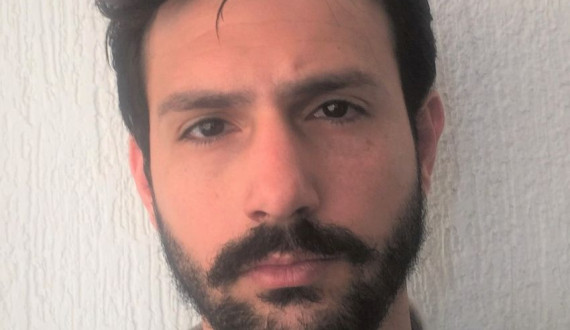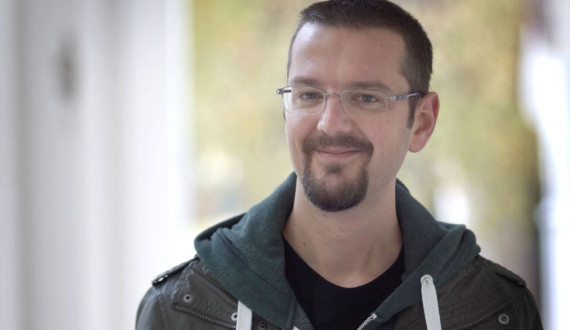Modifying Error 404 | SHARE Talks: Intelligence as a Power
2022-07-21 21:00
Cinema Square
Thursday, July 21
Cinema Square, 9 p.m.
Modifying Error 404 | SHARE Talks: Intelligence as a Power
Participants: Filip Milošević, Eda Nano, Julia Haas, Karolina Iwanska, Bruno Jakić, Laurence Meyer, Bojana Kostić, Asja Lazarević, Eleftherios Chelioudakis, Domen Savič, Dubravko Ćulibrk, Sanne Stevens, Mila Bajić
9.00–9.05 p.m. Intro – Đorđe Krivokapić, University of Belgrade
9.05–9.25 p.m. SHARE & Technopolice News – Građanska borba protiv nadzora #hiljadekamera
Filip Milošević, SHARE Fondacija
Eda Nano, Technopolice
SHARE Foundation has been fighting the biometric video-surveillance system for more than 3 years. Cameras for the new system, for which the state claims is not using facial recognition, have been installed in Belgrade without a legal basis and prior approval from the Data Protection Commissioner. In France, the Technopolice collective is waging the same battle, given that the proliferation of biometric surveillanceis also an issue in multiple EU countries. What did the community efforts to protect our public spaces bring us and where do we go from here?

Filip Milošević is an activist at SHARE Foundation. For several years he has been mostly working on topics about digital surveillance, including initiative #hiljadekamera ('thousands of cameras'), which gathers citizens and civil society to oppose implementation of biometric surveillance technologies. His interests also broaden to artificial intelligence, data centralization, digital identities and their impact on society and freedoms. He is a member of Belgrade Hacklab and advisory board of Internet Society Serbia (ISOC).

Eda Nano is a computer scientist, with knowledge on both programming and computer science theory. She is affiliated with La Quadrature du Net and the Technopolice collective. Eda is also a board member of April, a French organization promoting and defending free software. Since 2019, she is working as an independent in four areas: software development and project management, teaching and consultancy in computer science, ethics and predictive algorithms and community management and event organizing.
9.25–10.00 p.m. Panel - Approaches to AI Regulation
Julia Haas, Office of the OSCE Representative on Freedom of the Media
Karolina Iwanska, European Center for Not-For-Profit Law Stichting
Bruno Jakić, AI Applied
Laurence Meyer, Digital Freedom Fund
Moderator: Bojana Kostić, human rights and technology researcher and advocate
More and more services, both private and public, rely on artificial intelligence (AI) to provide us with a better experience or predict certain behaviour models. With the ethical and legal implications of AI use, what are the best approaches to regulating this complex area? The panelists will provide a nuanced approach to possible scenarios of regulation and how they can affect the development of AI and human rights.

Julia Haas is the Assistant Project Officer at the Office of the OSCE Representative on Freedom of the Media and an international law and human rights expert. In her work, she has focused on international relations, the intersection of technology and human rights, and the prevention of marginalization. Julia particularly focuses on policy research and development in the field of internet governance and digital participation. Previously, she worked as legal officer and adviser for human rights at the Austrian Ministry for Europe, Integration and Foreign Affairs. She holds a Master’s degree in Law from the University of Vienna, and, in her PhD studies, specializes on the impact of digital innovations on freedom of the media.
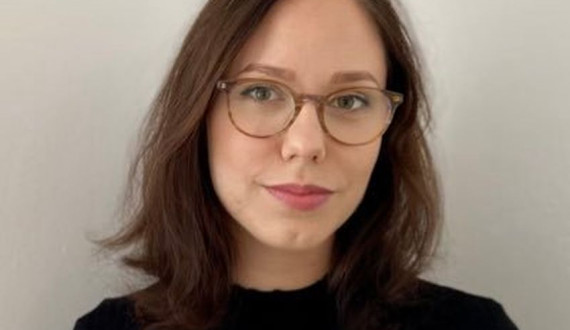
Karolina Iwanska (she/her) is a Digital Civic Space Advisor at ECNL. She is responsible for supporting ECNL in furthering its digital rights portfolio, broadening up partnerships with diverse stakeholders in the digital rights field and delivering ECNL policy and advocacy initiatives in this area. In particular, Karolina coordinates ECNL’s advocacy on the EU Artificial Intelligence Act and leads on developing the AI Learning Center. She is also involved in research and policy analysis at the intersection of security, counterterrorism, and technology. Finally, she supports ECNL’s training and education activities related to digital rights.
10.00–10.10 p.m. Readiness of SEE Governments for Safeguarding Human Rights in Cases of AI Implementation in Public Sector
Asja Lazarević, SHARE Foundation
In early 2022, SHARE Foundation and associates completed a research on how are governments in Southeast Europe applying advanced technologies, such as artificial intellegence, throughout their systems and services provided to citizens. Even though the level of advanced tech readiness varies between them, we can see that various challenges and problems remain, particulary when it comes to citizens' personal data processing and information security standards.
10.10–10.45 p.m. Discussion - AI Public Sector Strategies in SEE Region: Should We Speed Up or Take a Break
Eleftherios Chelioudakis, Homo Digitalis
Domen Savič, Citizen D
Dubravko Ćulibrk, AI Institute of Serbia
Sanne Stevens, London School of Economics and Political Science
Moderator: Mila Bajić, SHARE Foundation
Some countries of Southeast Europe, i.e. Serbia, Slovenia and Hungary, have adopted strategies for artificial intelligence. Although these are strategic documents outlining the state's policy intentions in this field, it is important to reflect on the challenges as well as opportunities that AI provide to the public sector. In that sense, do we need a harder push from the regional governments, or are efforts in this area going too fast compared to capacities?
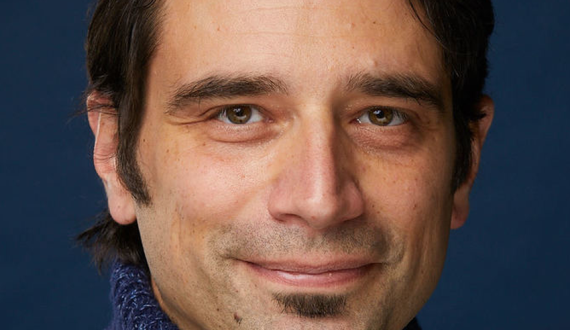
Dubravko Ćulibrk is the Director of the AI Institute of Serbia. He is also a Full Professor of Information Systems Engineering at the Department of Industrial Engineering and Management of the Faculty of Technical Sciences, University of Novi Sad, Serbia. Since July 2019, Dubravko has transitioned into the role of Ambassador for Tandemlaunch, a unique startup foundry based in Montreal, Canada. Also, he spent two years (2013-2015) as a postdoc researcher at the University of Trento, Italy with the Multimedia and Human Understanding Group.
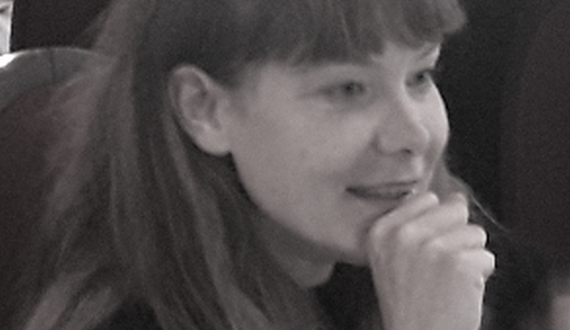
Sanne Stevens is the Table Co-Director of the Justice, Equity and Technology Project at the Department of Media and Communications of the London School of Economics and Political Science. She started out as grassroots organizer and has many years of experience working with civil society and media organizations in field of digital security and data-driven technology. She is interested in addressing the way digital technologies reinforce and transform power structures - and how to organize against inequality and for justice for all.




